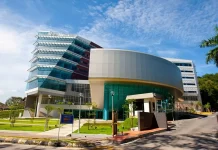SAP PP Consultant
A module of the SAP ERP system called SAP PP, commonly referred to as SAP Production Planning, aids companies in managing their production operations. It is intended to integrate with other SAP modules like Material Management (MM) and Sales and Distribution (SD) and to simplify and improve production planning, scheduling, and execution.
Bills of materials (BOM), work centres, routings, and production versions are a few examples of master data that you can produce and maintain with SAP PP. The basis for production planning and execution is this data.
Utilising historical data and client orders, SAP PP may be used to manage and forecast demand for completed goods. This makes it easier to create production plans that match customer needs.
Material Requirement Planning (MRP): Based on lead times, inventory levels, and demand, SAP PP’s MRP feature determines the necessary materials. To guarantee that materials are available when needed, it prepares procurement proposals for purchase requisitions or planned purchases.
Production Planning: With the aid of SAP PP, you are able to develop production plans by taking into account variables like available capacity, material accessibility, and client demand. It aids in figuring out the best production volumes and activity scheduling.
Shop Floor Control: You can keep an eye on and manage production activity on the shop floor with SAP PP. It has features for confirming production, releasing orders, balancing capacity, and staging materials.
Production Order Execution: SAP PP enables you to carry out production orders and keep tabs on their advancement. It offers features for order settlement, variance analysis, goods issuance, and goods reception.
SAP PP provides reporting and analytics tools to track key performance indicators (KPIs) such manufacturing output, capacity utilisation, and schedule adherence. To find areas for development, you can generate a variety of reports and analyse data.
To guarantee data consistency and smooth information flow across various business processes, SAP PP interfaces with other SAP modules including Materials Management (MM), Sales and Distribution (SD), and Finance and Controlling (FICO).
Managing and maximising the capacity of your production resources, such as work centres and machines, is possible with SAP PP’s capacity planning feature. To balance workloads and fulfil production demands, you can use capacity levelling, simulate various scenarios, and make educated decisions.
Integration of Quality Management: To incorporate quality control procedures into production planning and execution, SAP PP integrates with the SAP Quality Management (QM) module. You may handle quality checks during manufacturing, create inspection points, and declare quality requirements.
Integration with External Systems: In order to enable real-time data interchange and assist smooth production processes, SAP PP offers integration with external systems, such as Manufacturing Execution Systems (MES) or shop floor equipment.
Kanban Management: To enable just-in-time (JIT) production and inventory control, SAP PP incorporates Kanban capabilities. In a pull-based production system, you can regulate the flow of materials, monitor material replenishment signals, and set up Kanban boards.
These are only a few of the features and capabilities that SAP PP offers. It is a thorough module made to handle numerous production scenarios and assist companies in streamlining their manufacturing procedures.
































